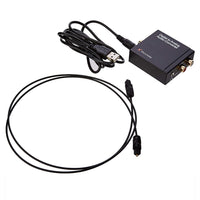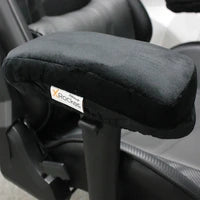ACE CASUAL – CORPORATE GOVERNANCE & MODERN SLAVERY STATEMENT
Introduction
The Modern Slavery Act 2015 (the ‘Act’) require businesses in the UK to state the actions they have taken during the financial year to ensure modern slavery is not taking place in their operations and supply chains. Ace Casual Limited is fully committed to playing a part in eradicating modern slavery. We firmly support transparency and collaboration to eliminate the risks of modern slavery.
As a business currently trading below the threshold, we are not required by law to make a formal statement. However, we do recognise that many of our partners will be seeking reassurance from us about our compliance with the requirements of the Act.
This statement refers to the financial year ending May 2024 and sets out the steps taken by Ace Casual to prevent modern slavery and human trafficking in our own operations and supply chains.
Organisational Structure
Ace Casual is part of an organisational structure that operate within the manufacturing and sales of consumer goods to the video gaming industry, specifically furniture and home seating.
We have 3 registered Directors of our business who oversee the global organisation of Ace Casual, and along with the senior management team, ensure that our organisation continues to act with professional conduct in our day-to-day sourcing of new suppliers, manufacturers, supply chain logistics, sales and marketing activities to the retailers and distributors to whom we service.
Our supply chains
All of our direct suppliers and manufacturers comply to being open to audit and come under contract by us with regards to this. The audits we carry out are those used and required by the worlds largest retail chains, Walmart, Target, Argos (to name some) and so we use a combination of Social and Ethical audits, Supply Chain Security audits and Compliance audits to ensure standards within our supply chains.
Our supply chains and operations are split across the UK, EU, Middle-East, Australia and New Zealand. Our sourcing is from partner factories where we have long-standing cooperation in countries such as China, Vietnam, Malaysia, Indonesia, India and Turkey.
We are committed to Human Rights and our business engagement focuses to:
- Ensure international human rights standards are respected at all our suppliers’ sites.
- Focus on the most serious risks to workers throughout our supply chains, working transparently with factories and others to identify and address them.
- Support our retail partners to ensure our partners meet their standards and that through this our supply chain is best in class.
Starting with our own business operations and service providers, and then increasing the visibility we have of our global supply chains, we work to identify actual or potential risks of modern slavery and help ensure remediation plans are engaged where any cases are identified.
Corporate Governance and Social Responsibility
Our human rights strategy is led by the Global Compliance Manager, within our Product Development team. Governance and progress monitoring of our human rights work, for all markets and subsidiaries, sits with the Board of Directors, and is chaired by our company CEO.
We update on current and future risks, progress and performance, and breaches of our policies to the Group Risk and Compliance Committee chaired by the Group CEO on at least an annual basis.
Our support team in our China offices provide on-the-ground and at-site support where needed and we use accredited third-party services to ensure Impartial audits and reporting takes place.
As a business we have due diligence in place to ensure to we consider:
- Sustainable livelihoods
- Fair worker representation
- Gender equality
- Forced labour
As a socially responsible manufacturer and supplier we take a 3 pillar approach.
- Improve: Driving improvements to working conditions on sites where we have direct leverage together with our suppliers so that we know we are sourcing from better factories and service providers
- Transform: Where we cannot solve complex sector-wide issues alone, we work together with others to drive transformational change by tackling the root causes of endemic issues – focusing especially on worker representation, gender equality, tackling forced labour and sustainable livelihoods.
- Advocate: We collaborate with our peers to call for wider change or to influence regulation and legal frameworks where there is a need.
The Role of Certification
We work hard with suppliers to obtain visibility of supply chains beyond our first tier. In addition to our own mapping efforts with our suppliers, we also use certification to provide additional assurance of our sourcing. This won’t solve endemic issues such as modern slavery on its own, but it is an important step to ensuring minimum standards are met.
Certification and accreditation are important benchmarks to ensure impartial assessment is conducted and to provide visible and transparent reporting to our clients and customers with regards our operations.
We take an “equivalency” approach to certification, not mandating one particular audit as this can add costs for supplier and factories. This way we create an industry aligned audits and protocols and so engage with schemes such as:
- Social Labour Convergence Program (SLCP)
- Better Work, Business Social Compliance Initiative (BSCI)
- Sedex Members Ethical Trade Audit (SMETA)
Ace Causal maintains the right to conduct unannounced audits of any disclosed locations.
Other Policy and Governance
Ace Casual include into their own employment contracts the requirement for all staff to report to a director any breach, incident or suspected activity that is opposed with any codes of conduct or policies. These include without exception, any incident of Human Rights or Modern Slavery concerns.
For more details regarding ACE CASUAL, our approach to corporate governance or modern slavery, them please contact us directly via our support form at www.xrockeruk.com
























